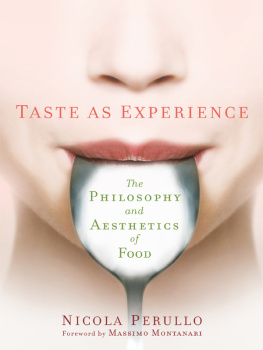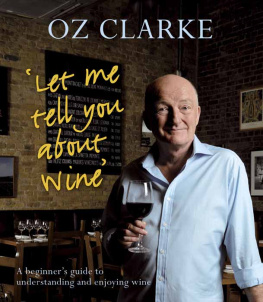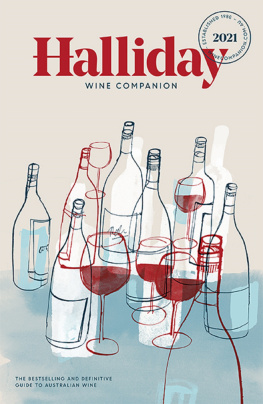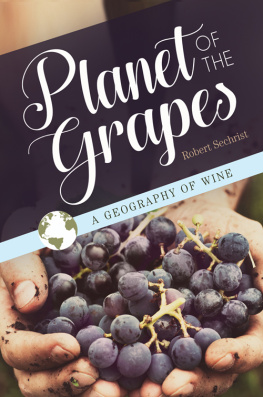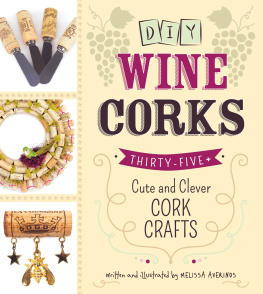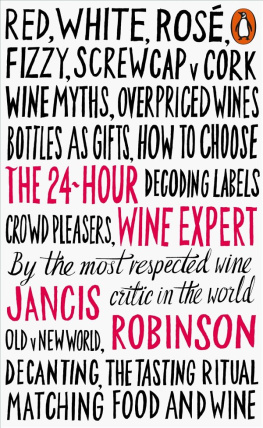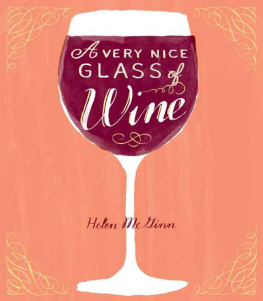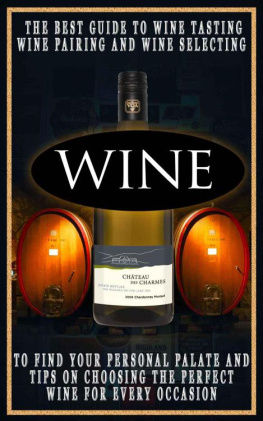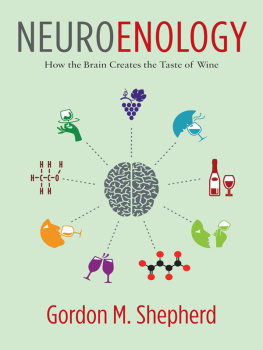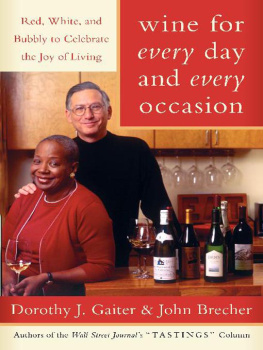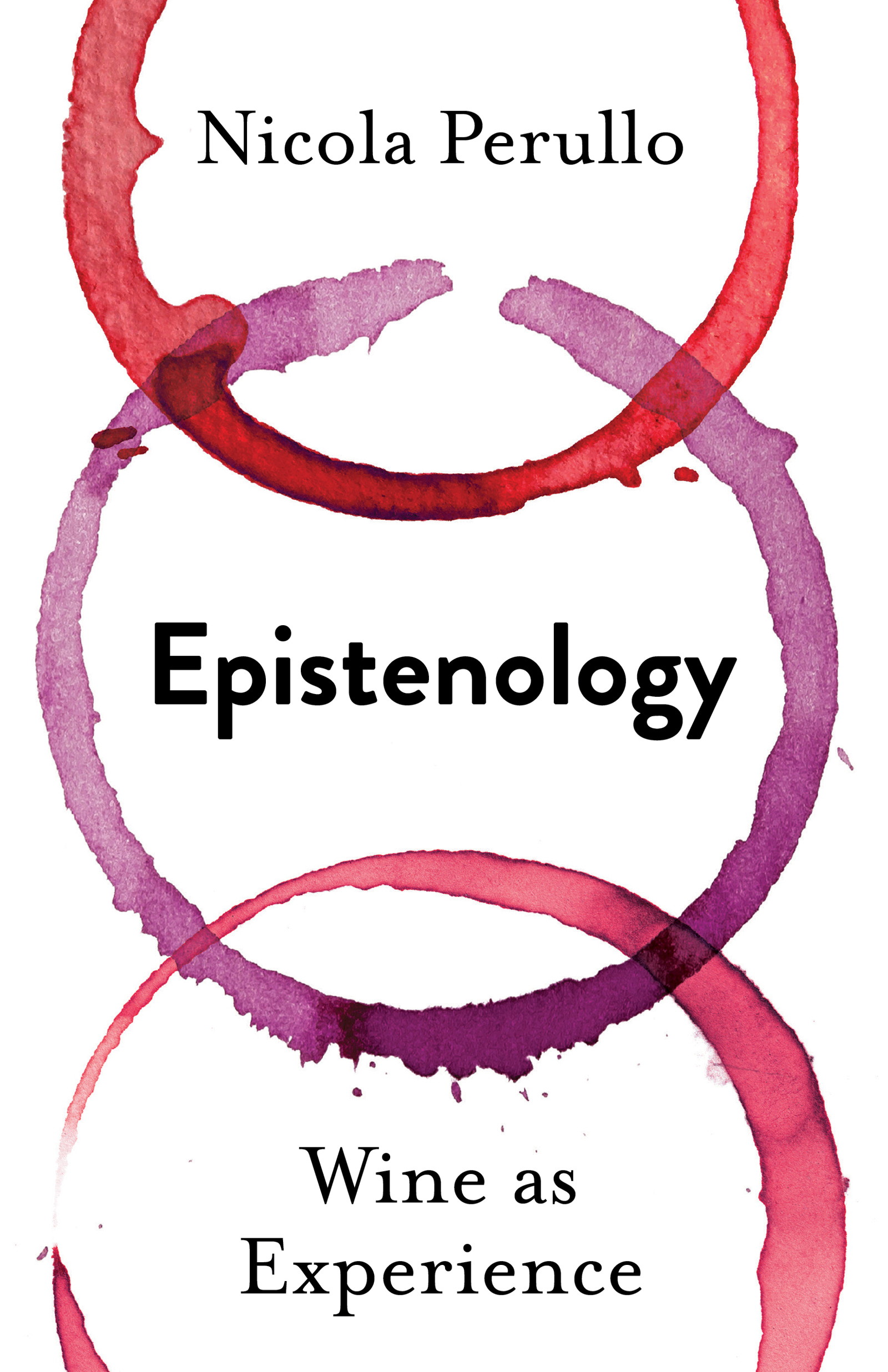Contents
Guide
Pagebreaks of the print version
EPISTENOLOGY
ARTS AND TRADITIONS OF THE TABLE
ARTS AND TRADITIONS OF THE TABLE: PERSPECTIVES ON CULINARY HISTORY
ALBERT SONNENFELD, SERIES EDITOR
For a complete list of titles, see
EPISTENOLOGY
WINE AS EXPERIENCE
NICOLA PERULLO
Columbia University PressNew York
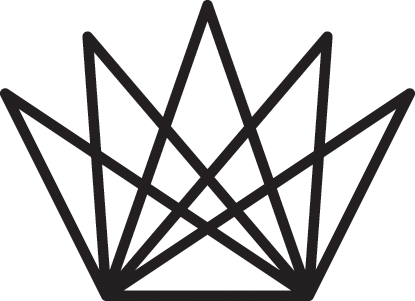
Columbia University Press
Publishers Since 1893
New YorkChichester, West Sussex
cup.columbia.edu
Copyright 2021 Columbia University Press
All rights reserved
E-ISBN 978-0-231-55220-2
Library of Congress Cataloging-in-Publication Data
Names: Perullo, Nicola, 1970 author.
Title: Epistenology : wine as experience / Nicola Perullo.
Description: New York : Columbia University Press, [2020] | Series: Arts and traditions of the table: perspectives on culinary history | Includes bibliographical references and index.
Identifiers: LCCN 2020017906 (print) | LCCN 2020017907 (ebook) | ISBN 9780231197502 (hardback) | ISBN 9780231197519 (trade paperback)
Subjects: LCSH: Wine tasting.
Classification: LCC TP548.5.A5 P47 2020 (print) | LCC TP548.5.A5 (ebook) | DDC 641.2/2dc23
LC record available at https://lccn.loc.gov/2020017906
LC ebook record available at https://lccn.loc.gov/2020017907
A Columbia University Press E-book.
CUP would be pleased to hear about your reading experience with this e-book at .
Cover image: Dreamstime, 123RF, iStock.
Cover design: Noah Arlow
To my brotherly friend Marco Zocchi, partner in countless epistenological crimes for decades

CONTENTS
T he book you are about to read requires some preliminary clarifications.
First, this essay proposes an agreement with the reader, a request for engagement. I ask for a willingness to be open and exposed to different movements of language as an ongoing experience of reading. I have conceived this text as a sort of wayfaring, and I suggest approaching the experience of drinking a glass of wine in the same way: each path followed, each sip ingested, can offer different thoughts and different feelings. Like a glass of wine, moreover, the text can be understood and felt in different ways, depending on the background of the reader. Inviting openness to multiple perspectives is the main reason why names and notes are reduced to a minimum.
Second, the essay comprises two parts, representing two different periods of the journey. These periods differ in time: the first was written between 2015 and 2016, the second in 2017 and 2018. In the Italian version, they correspond to two different books, published, respectively, in 2016 and 2018. This temporal gap entails not only the appearance, in the second part, of new issues as well as the deepening of some already presented in the first but also a clear difference in the form and style of writing. The first part is more belligerent and dry, the second calmer and smoother. But they both advance the same arguments, and I find the sequence a good way to communicate to the reader how this experience of thinking and feeling with wine came into being.
Third, regarding the title: epistenology is my neologism, and it indicates two different semantic domains. One clearly relates to the crasis between epistemology and oenology: the theory of knowledge and the knowledge of wine condensed into one word. The other semantic domain, however, also plays a pivotal role in the book: the complex combination of epistemology with ontology, where the n of ontology has replaced the m of epistemology. In my view, this expresses the idea that knowledge and being are never fully separable; rather, they relate to each other. So the title expresses the following: through wine, we try to show how knowledge and appreciation are always participative and intimate actions that make the reality as we perceive it. As with life, wine is what we constantly make of it. This is not a subjective position but rather a radically relational one: I try to approach wine as an encounter, a continuous correspondence of doing and undergoing. Epistenology proposes precisely an ecology of attentionas caring, listening, and makingwith wine.
T his work owes a lot to the students with whom, for many years, I have learned to experience wine through a different approach. I want to thank them all. Although it may seem very personal and intimate, the book is the expression of a collective oeuvre: there are friends who gave me suggestions and insights or shared with me the same sensitivity with respect to the odorous liquid. Of course, I am also very grateful to the winegrowers who, with their wines, have inspired different parts of the book.
I am grateful to Paolo Gruppuso, Elena Mancioppi, Maddalena Borsato, and Nicola Rudge Iannelli for their help and contributions in the first phase of translation.
I express all my gratitude to Carolyn Korsmeyer, Wendy Lochner, and Ken Liberman for their valuable and generous help in editing the final version of the text, both for its content and for the language.
Wine includes characteristics that are important for human nature. As Rufo explicitly states: wine not only facilitates natural warmth but also clarifies sluggish blood, spreading throughout the body and greatly expanding the veins, it liberates the liver, expels the gloomy vagueness that generates sadness, supporting all parts of the body. Not only does wine demonstrate its benefits in the body but also within the soul: it renders the soul joyous, hides sadness, assists in investigating subtle realities and in the contemplation of the difficult ones, permitting readiness, audacity and prodigality, reducing pain and fatigue while disposing the spirit in order that the soul can cooperate with them.
Arnaldus de Villa Nova, thirteenth-century physician
It is effectively not through discourse that the spiritual man appreciates if a demon or an angel persuades him of something; but a sort of tactility and taste and an intuitive sensing just as we immediately appreciate the taste of wine and bread with our tongues.
Tommaso Campanella, sixteenth century
I t may seem bizarre, but the older we get, the less we know. We often delude ourselves about the value of and reasons for our knowledge to such a degree that we can design our entire existence under the aegis of ignorance and indolence.
This essay originates in an experience that completely overturned my previous assumptions. It has been like crossing a frozen river. Unexpected, intimate, and forceful, it made me realize the value of discovering oneself, perhaps in retrospect, to be exposed and vulnerable during the very years of lifes most intense activities, of ones most acclaimed successes; it gave me the chance to experience a growing awareness of my own weakness even while acting with ordinary and habitual determination. This overturning was the ongoing result of a sense of unease, above all, in relation to philosophical discourse or, more generally perhaps, to intellectual discourse: talking, discussing, claiming to be right, competing, arguing, and triumphing. At the same time, however, it was an unease with regard to the equally automatic and rigid alternativessuch as programmatic hedonism or militantly cynical indifferencein contrast to which I prefer the ongoing exercise of


